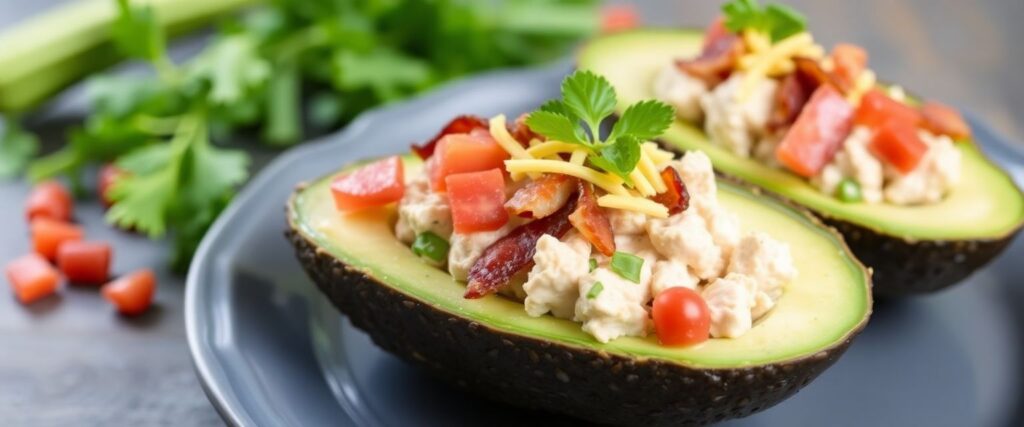
The ketogenic diet has been a game-changer for me. I’ve shed pounds, gained energy, and felt more mentally sharp than ever before. But my keto journey hasn’t been without its challenges. One of the biggest hurdles I faced was figuring out which vitamins and supplements were truly keto-friendly, particularly the Vitamins to Avoid on Keto.
When I first started keto, I thought I had it all figured out. Eat lots of fat, keep carbs low, and watch the pounds melt away. However, I soon learned about the importance of avoiding certain Vitamins to Avoid on Keto.
Simple, right? Not quite. It wasn’t until I hit a major plateau that I realized there was a sneaky saboteur in my supplement cabinet. Vitamins and supplements aren’t one-size-fits-all, particularly the Vitamins to Avoid on Keto, especially when you’re following a ketogenic diet. Some of these little pills and powders that we think are helping us could actually be kicking us right out of ketosis without us even realizing it.
What I’m about to share might just be the key to producing your full keto potential.
The Hidden Carb Trap
When you’re meticulously counting every carb that passes your lips, the last thing you’d expect is for your trusty multivitamin to throw a wrench in the works. But here’s what’s interesting – many supplements are loaded with hidden carbs that can add up fast.
Gummy vitamins are a prime example. They’re tasty, convenient, and oh-so-tempting. But they’re often packed with sugars or sugar alcohols that can spike your blood sugar and knock you out of ketosis faster than you can say “net carbs.”
It’s not just the gummies, though. Even some traditional pill-form vitamins use fillers and binders that contain starches or sugars. These hidden carbs can quickly derail your ketogenic efforts without you even realizing it.
The solution? Always read the label.
Look for supplements specifically formulated for keto dieters, or opt for pure, single-ingredient supplements when possible. Your body (and your ketones) will thank you.
The Maltodextrin Menace
Let’s talk about a particularly sneaky ingredient that’s found its way into countless supplements: maltodextrin. This seemingly innocent additive is actually a rapidly digestible carbohydrate that can cause significant blood sugar spikes. I learned this the hard way when I couldn’t figure out why my ketone levels were all over the place. After some detective work, I uncovered that my “sugar-free” electrolyte powder was loaded with maltodextrin. I was unknowingly drinking a glucose cocktail every day!
Maltodextrin is especially prevalent in powdered supplements, meal replacement shakes, and even some liquid vitamins. It’s often used as a filler or to improve texture and taste.
But for keto dieters, it’s bad news.
If you see maltodextrin on the ingredient list of any supplement, it’s best to steer clear and find a keto-friendly choice. Your ketone levels will be much more stable, and you’ll avoid those frustrating plateaus.
Fiber Supplements: A Double-Edged Sword
Fiber is crucial for gut health, especially on a keto diet where many high-fiber foods are off-limits. But here’s where it gets tricky – not all fiber supplements are created equal in the eyes of ketosis. Some fiber supplements, particularly those designed to help with regularity, can contain hidden carbs or sugar alcohols that may impact your blood sugar levels. Others might use binding agents or fillers that add to your daily carb count.
I’ve found success in focusing on keto-friendly, high-fiber foods like chia seeds, flaxseed, and low-carb vegetables. When you do need a fiber boost, look for pure psyllium husk powder or other single-ingredient options.
Be especially wary of fiber supplements that claim to be “sugar-free” or “low-carb.” These labels can be misleading, and the products may still contain ingredients that can impact your ketosis.
The Vitamin C Conundrum
Vitamin C is essential for our health, but it can be a bit of a minefield for keto dieters. Many vitamin C supplements, especially the effervescent or chewable varieties, are loaded with added sugars or artificial sweeteners.
Even some pure ascorbic acid powders can be problematic if they’re corn-derived, potentially containing trace amounts of carbs. While these amounts might seem negligible, they can add up if you’re taking high doses.
My go-to solution? I opt for whole food sources of vitamin C like bell peppers and broccoli. When I do supplement, I choose a pure, non-corn-derived ascorbic acid or a liposomal vitamin C formulation.
The goal of supplementing on keto is not about getting nutrients – this involves getting them in a way that supports your ketogenic state.
Electrolyte Imbalance: The Keto Flu Culprit
One of the biggest challenges when transitioning to keto is managing electrolyte balance. The dreaded “keto flu” is often a result of electrolyte deficiencies as your body adjusts to its new fuel source.
Many people reach for electrolyte supplements to combat this, but beware – some popular brands are packed with sugars or maltodextrin. Even worse, they might not contain the right balance of electrolytes for a keto dieter’s needs.
I’ve found that making my own electrolyte drink is more effective and confirms I’m not inadvertently consuming hidden carbs. Here’s my go-to recipe:
- 1 liter of water
- 1/2 teaspoon of salt (sodium)
- 1/4 teaspoon of potassium chloride (lite salt)
- 1/4 teaspoon of magnesium citrate powder
This homemade electrolyte drink has been a game-changer for me, especially during the initial transition to keto and during intense workouts.
The Fat-Soluble Vitamin Paradox
On a high-fat diet like keto, you’d think fat-soluble vitamins (A, D, E, and K) would be a non-issue. But the reality is a bit more complex.
While it’s true that a keto diet can improve the absorption of these vitamins, it’s also possible to overdo it. Vitamin A, in particular, can accumulate to potentially toxic levels when consumed in excess on a high-fat diet.
The key is balance. Focus on getting these vitamins from whole food sources like egg yolks, fatty fish, and leafy greens. If you do supplement, choose a high-quality, balanced formula and don’t exceed recommended doses.
It’s also worth noting that some fat-soluble vitamin supplements use soybean oil or other vegetable oils as carriers. These oils are high in omega-6 fatty acids, which can throw off your omega-3 to omega-6 ratio on a keto diet.
Look for supplements that use MCT oil or other keto-friendly carriers instead.
Navigating B-Complex Vitamins
B vitamins play a crucial role in energy metabolism, which is especially important when your body is adapting to using fat for fuel. However, some B-complex supplements can be problematic on keto.
Many B vitamin supplements use forms that are less bioavailable, meaning your body can’t use them efficiently. Additionally, some contain fillers or use sweeteners to mask the strong taste of B vitamins.
I’ve found success with methylated B vitamins, which are more easily utilized by the body. Look for supplements that contain methylcobalamin (B12), methylfolate (B9), and other activated forms of B vitamins.
Be especially cautious with vitamin B3 (niacin) supplements. High doses of niacin can impact insulin sensitivity and blood sugar levels, potentially interfering with ketosis.
If you need to supplement B3, opt for niacinamide, which doesn’t have the same effect on blood sugar.
The Mineral Balancing Act
Minerals like magnesium, zinc, and potassium are crucial on a ketogenic diet, but supplementing them needs careful consideration.
Magnesium, for instance, comes in many forms. Magnesium oxide is cheap and common, but poorly absorbed. Magnesium citrate can have a laxative effect, which might not be ideal for everyone.
I prefer magnesium glycinate or magnesium l-threonate for better absorption and fewer side effects. These forms are less likely to interfere with ketosis and are gentler on the digestive system.
As for zinc and potassium, I focus on food sources first and supplement only when necessary, always being mindful of proper dosing to avoid imbalances. Too much zinc can interfere with copper absorption, while excessive potassium supplementation can be dangerous, especially if you have kidney issues.
The goal of mineral supplementation on keto is to support your body’s new metabolic state, not to overload it with unnecessary nutrients.
Practical Tips for Keto-Friendly Supplementation
- Always read labels carefully: Look for hidden carbs and problematic additives. Don’t trust marketing claims – go straight to the ingredient list.
- Choose liquid or powder forms of supplements when possible: These are often better absorbed and less likely to contain fillers or binders that could impact ketosis.
- Consider getting a blood test: Identify specific deficiencies before supplementing. This can help you target your supplementation strategy more effectively.
- Rotate your supplements: This can prevent overaccumulation of any one nutrient and ensure you’re getting a balanced intake.
- Focus on whole food sources of nutrients first: Use supplements to fill in the gaps, not as your primary source of vitamins and minerals.
- Be patient with your body: As it adapts to keto, not all symptoms require immediate supplementation. Sometimes, giving your body time to adjust is the best approach.
- Keep a journal: Track how different supplements affect your ketone levels and overall well-being. This can help you fine-tune your supplementation strategy over time.
- Consider the timing of your supplements: Some nutrients are better absorbed at certain times of day or when taken with food. For example, fat-soluble vitamins are best taken with a meal containing fat.
- Be cautious with “proprietary blends”: These can hide the exact amounts of ingredients, making it difficult to know if they’re truly keto-friendly.
- Don’t overdo it: More isn’t always better when it comes to supplements. Stick to recommended doses unless otherwise advised by a healthcare professional.
Key Takeaways
- Many common vitamins and supplements can contain hidden carbs that disrupt ketosis.
- Gummy vitamins, maltodextrin-containing products, and certain fiber supplements are often problematic for keto dieters.
- Electrolyte balance is crucial on keto, but many commercial electrolyte supplements are not keto-friendly.
- Fat-soluble vitamins require careful consideration on a high-fat diet to avoid potential toxicity.
- Choose bioavailable forms of vitamins and minerals, focusing on whole food sources when possible.
- Always read labels carefully and opt for keto-specific formulations when available.
- Personalize your supplement regimen based on your person needs and responses.
People Also Asked
What vitamins should I avoid on keto?
Avoid vitamins with added sugars, maltodextrin, or high-carb fillers. Be cautious with gummy vitamins, some fiber supplements, and certain forms of vitamin C.
Can multivitamins kick you out of ketosis?
Some multivitamins contain hidden carbs or additives that can potentially disrupt ketosis. Always check the ingredient list and opt for keto-friendly formulations.
Is vitamin D okay on keto?
Vitamin D is generally fine on keto, but be cautious of supplements that use non-keto-friendly carriers like soybean oil.
Are gummy vitamins keto-friendly?
Most gummy vitamins are not keto-friendly because of their sugar content. Look for sugar-free alternatives specifically designed for keto dieters.
Can I take fiber supplements on keto?
Some fiber supplements are keto-friendly, but many contain hidden carbs. Opt for pure psyllium husk or other single-ingredient options.
How do I supplement electrolytes on keto?
Make your own electrolyte drink or choose keto-specific electrolyte supplements without added sugars or maltodextrin.
Is magnesium citrate good for keto?
Magnesium citrate is keto-friendly but may have a laxative effect. Consider magnesium glycinate or l-threonate as choices.
Can B vitamins affect ketosis?
Most B vitamins don’t directly affect ketosis, but some supplements contain non-keto-friendly additives. Choose methylated forms when possible.
Are liquid vitamins better for keto?
Liquid vitamins can be a good choice on keto as they’re often better absorbed and less likely to contain fillers, but always check the ingredient list.
How does keto affect vitamin absorption?
The high-fat nature of keto can improve absorption of fat-soluble vitamins (A, D, E, K) but may impact absorption of some water-soluble vitamins.
